African students at the Sino-Africa Science and Technology Backyard program gain hands-on experience to improve farming practices for African smallholder farmers.
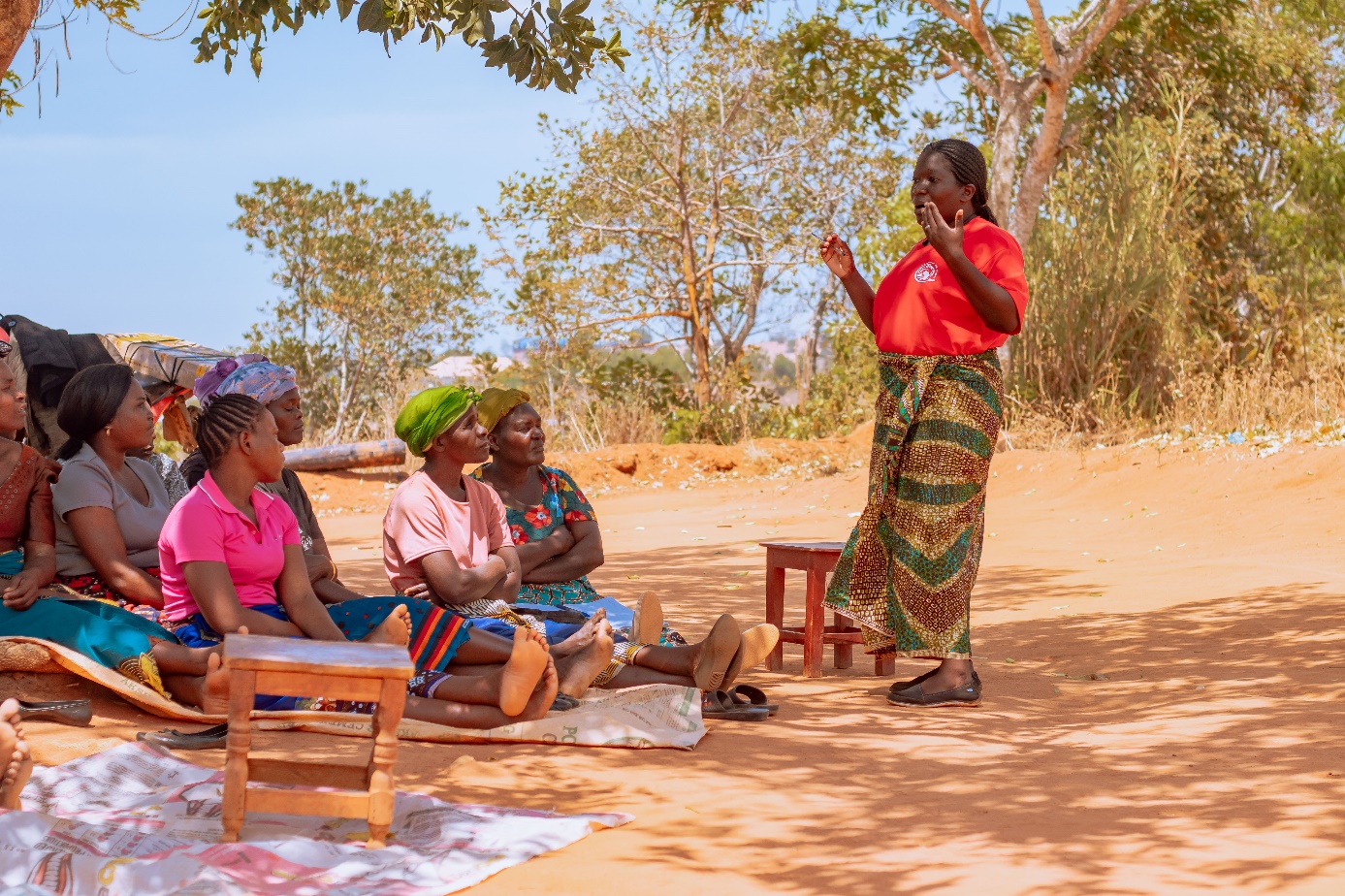
Like a farmer, Aline woke up early, around 6 am, every day at her experimental station in Quzhou county, Handan, North China's Hebei province, beginning her busy day with various farming tasks.
Aline's full name is Roukiatou Aline Beniwende Pamtaba. A 26-year-old from Burkina Faso, a western African country, she began her graduate studies at the College of Resources and Environmental Sciences at China Agricultural University (CAU) in Beijing in September last year.
Majoring in resource utilization and plant protection, she is currently conducting research in experimental fields in rural areas of Quzhou, about 350 kilometers southwest of downtown Beijing, under the Science and Technology Backyard (STB) program.
The program, launched in 2009 by CAU, involves teachers and students participating in agricultural production in rural areas. It aims to address practical agricultural problems, develop high-level agricultural talent, and contribute to rural modernization.
READ MORE: 'Tailored solutions' help fill Africa's grain bags
In 2019, the university initiated the Sino-Africa STB project in Quzhou to train young technical talent for African nations, focusing on production issues faced by smallholder farmers, according to Jiao Xiaoqiang, an associate professor at CAU and head of the project.
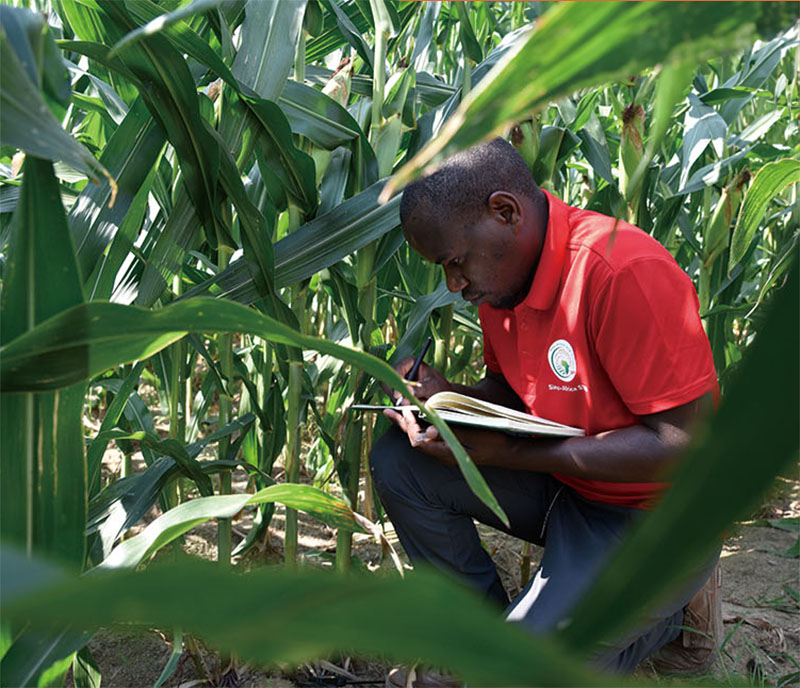
So far, the project has trained more than 90 graduate students from 12 African countries, establishing a practical talent training mechanism tailored to the agricultural development needs of Africa, Jiao noted.
Aline arrived in Quzhou in February and has since been living and conducting experiments in the county.
"Usually, I head straight to the fields. Some days, I collect crop samples for analysis, such as measuring root length, plant height, leaf area, and chlorophyll content. On other days, I focus on data collection, calculating shoot and root weight, or analyzing plant growth metrics," she said.
Aline especially enjoyed interacting with local farmers, discussing the agricultural techniques they use, and observing their practices.
"These encounters are invaluable because I get to understand the real-world applications of my research and see firsthand the challenges they face," she said, adding that working alongside local farmers has significantly broadened her perspective on sustainable agriculture.
Aline is currently working on several projects. One of them involves measuring the growth patterns of maize under different environmental conditions to better understand how climate variables affect crop yield.
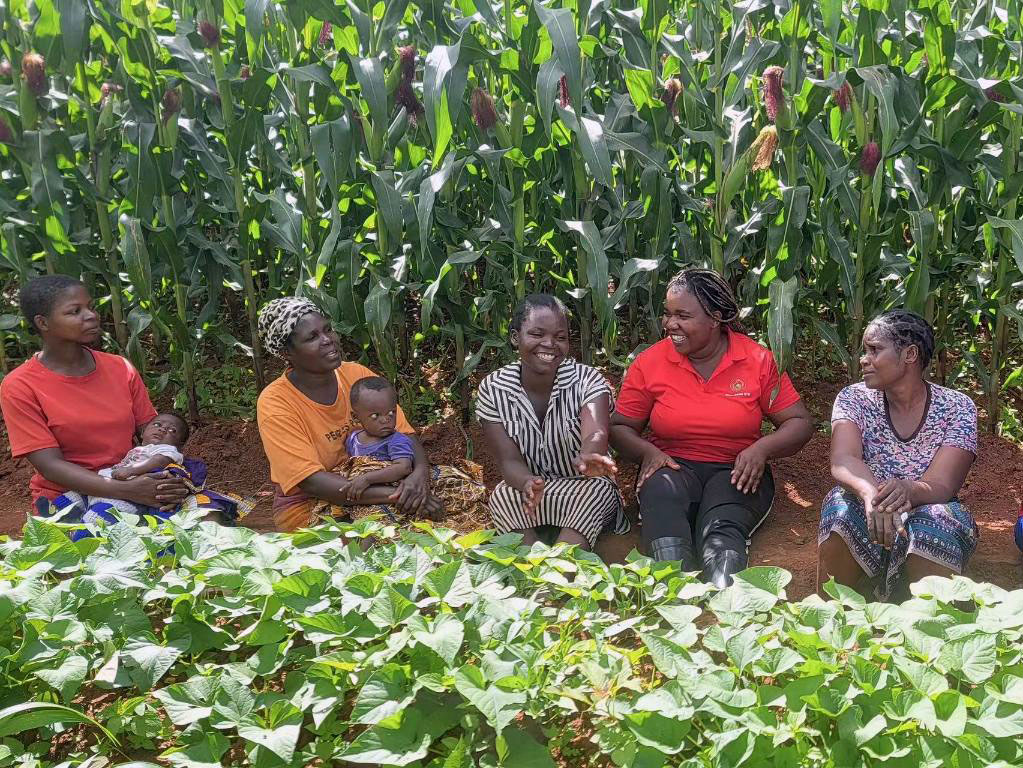
In another experiment, she compares traditional fertilizer application methods with new techniques in maize production to determine which method yields better results and improves soil health.
"I've gained a better understanding of how to approach farming challenges practically and how scientific knowledge can be translated into useful techniques for farming. This gives me a sense of fulfillment, knowing that my work and interactions can positively impact farmers' livelihoods," Aline said.
After completing her experiments, she will return to Beijing in November to start data collection for a meta-analysis.
Similarly, Matthews Kafunda, a 27-year-old from Malawi, is currently studying and conducting experiments in Tasiqiao village, Quzhou.
"The advantage of the STB model lies in its combination of theory and practice to drive agricultural innovation," Kafunda said, adding that he plans to advocate for the STB model in agricultural practices in Malawi after graduation.
"The knowledge I've gained can help accelerate research and the development of problem-solving technologies for smallholder farmers in my country," he said.
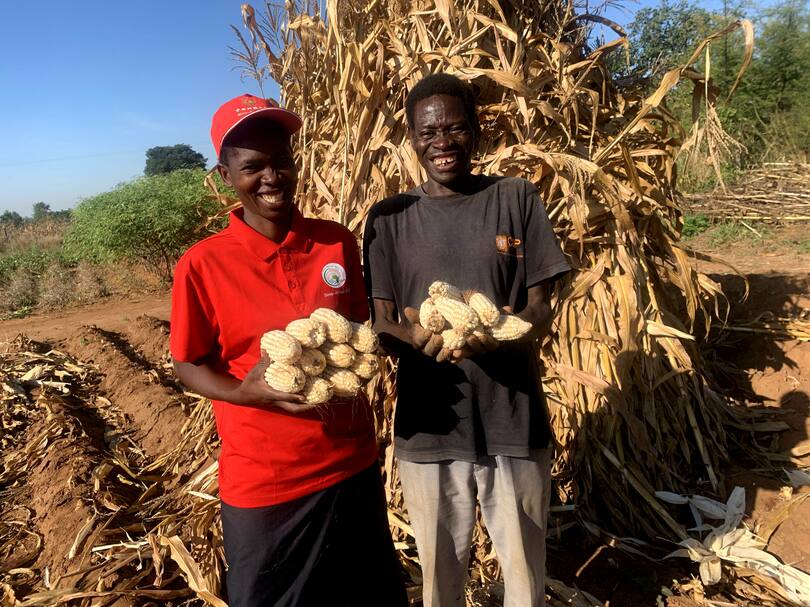
Since 2022, three STB programs have been launched by students from Malawi who studied at CAU and took part in the program in Quzhou.
"Students involved in the programs have enriched local farmers' channels for information acquisition via technical training and activities that promote crop cultivation management techniques," Jiao said.
So far, more than 200 households of local farmers in Malawi have benefited from the programs' training, contributing to the modernization of local agriculture.
At an STB project in Thuchira, a village in southern Malawi, two students, Lester and Brenda, guided 30 farmers in maize cultivation and conducted field demonstrations covering about 0.3 hectares of land.
In June, the average maize yield of 90 cooperative farming households in the northern, central, and southern regions of Malawi reached eight metric tons per hectare — triple the yield compared to previous years, according to a report by Hebei Daily.
According to Jiao, under the Sino-Africa STB project, CAU recruits master's students in agriculture from African countries to study in China.
The program adopts a "1+1+1"talent training model: in the first year, students study theoretical courses at the Beijing-based university, then go to Quzhou for agricultural practice.
"After the first year of study in China, students will acquire advanced agricultural knowledge and production technology, learn how to interact with farmers, and gradually grow through close collaboration with them," Jiao said.
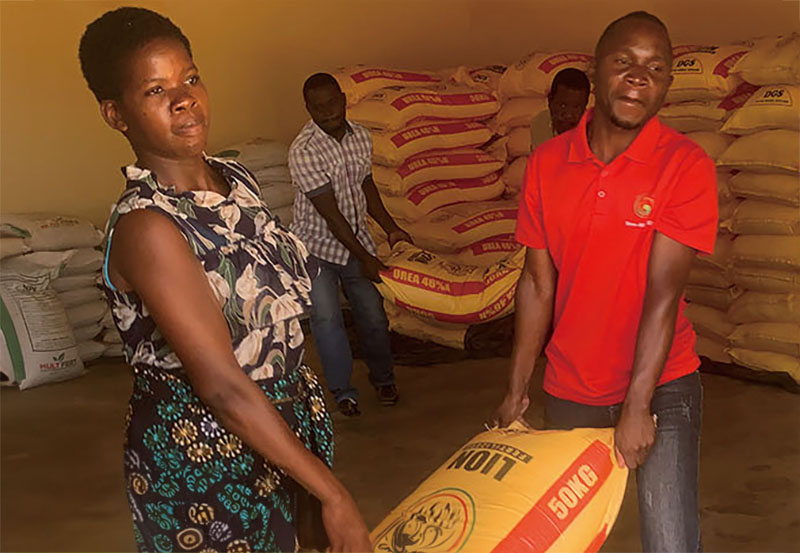
In the second year, they return to Africa to provide solutions for small-scale farmers based on their studies in China.
In the third year, they return to China to complete their research and thesis, based on their practical work in both China and Africa.
"This training model not only enhances students' overall capabilities but also promotes the application of agricultural technologies, contributing to agricultural development," Jiao said.
ALSO READ: China's rice technology nourishing Africa's needs
CAU and Malawi University of Science and Technology signed an agreement in Beijing during the 2024 Summit of the Forum on China-Africa Cooperation on Sept 5, to jointly establish an Africa center for the STB program.
"We will cooperate to create a demonstration area in Africa for high agricultural yields and efficient resource utilization, bringing our experience in Quzhou to more African countries," Jiao said.


